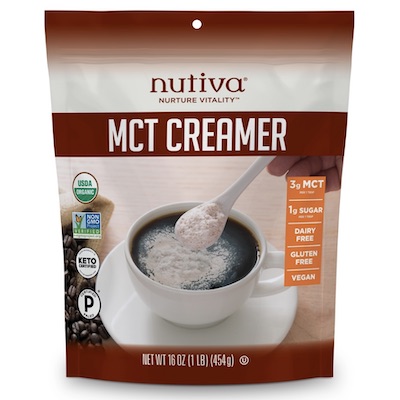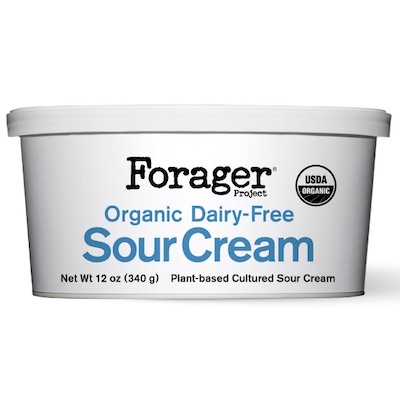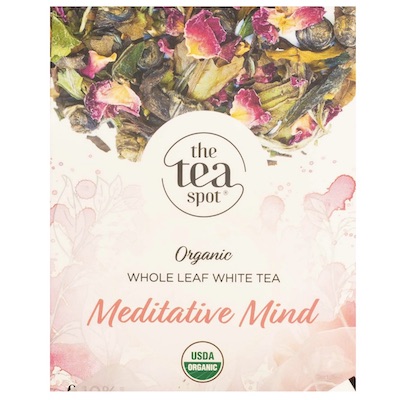
How Data Will Play an Increasingly Important Role in Developing Products and Executing Marketing Strategies for Organic Food Brands
Moringa, CBD and pea protein.
It is well-known that these are some of the hottest ingredients in the industry.
However, if you were to ask knowledgeable people precisely how popular these ingredients are and for what reason they are being consumed, the answers would be very difficult, if not impossible, to come by.
In its recently released 2019 Food for Function report, Israeli startup Tastewise has taken on this task.
By utilizing artificial intelligence and machine learning, the company scours the web and uses billions of different data points — online conversations, photos, ingredients on restaurant menus, recipes, mentions on social media – and is able to translate these findings into quantifiable data.
Yet, what is most compelling is how the company is able to interpret this data.
“For every one of the 189,000 menus that we analyze, we also analyze the social conversation around this menu. Our algorithms understand the full context of the ingredients — the taste, color, which meal of the day it was and what was the motivation to choose this ingredient,” Alon Chen, co-founder of Tastewise, told Organic Insider.
What is important to note is that the data from Tastewise is an observation of consumers’ tastes and behaviors. It does not make the case for its medical or nutritional validity.
Highlights of the report include:
- 37% of consumers are using food as a functional tool to reach their goals; antidepressant, anti-inflammatory, antioxidant, weight loss, energy boost or gut health goals are particularly important for consumers.
- Over the past year, CBD has seen a significant rise in consumption for improved gut health (286%), sleep (201%), energy (70%) and to improve the immune system (138%).
- For consumers thinking about weight loss, the following ingredients saw an increase in mentions on social media over the past year: provolone (109%), maple syrup (88%), coconut water (64%) and cranberries (63%).
- Brain health is of real concern to people, and mentions of the brain and food are up 46% over the past 12 months. Dates, sauerkraut and ginger are particularly in demand.
HOW DATA CAN BE OF SIGNIFICANT BENEFIT TO ORGANIC BRANDS
While it could easily be argued that a majority of the most innovative minds in the organic food world can be found at Expo West each March and that the intuition of these individuals cannot be replaced by computers, the importance of data should not be dismissed.
Here are a few reasons how data can play a key role in our industry:
1) Product development, lowering financial risk A brand usually launches because a founder tests it on a small scale, and it takes off due to its popularity in the marketplace. The risk is relatively low.
However, what about the company’s second, third or fourth product? More information can help make better decisions about future products, especially when millions of dollars of investor money is at stake.
2) Driving marketing and social media content strategies If it is empirically clear which health functions and which ingredients consumers are talking about, this will make marketing and social media strategies much more apparent and effective.
3) Making organic brands more attractive to potential acquirors By utilizing information and having a data-driven approach to product innovation, this could make a brand more attractive to potential acquirors. This will demonstrate that a company utilizes a real methodology to develop products and to innovate, rather than relying on one superstar employee.
For many organic companies, using data to come up with new products may seem strange or “just not how things are done.”
Yet, this precedent has been set in other industries, where using anything other than human evaluation was once considered heresy. Namely, professional baseball.
“In 2001, Billy Beane, the general manager of the Oakland Athletics, introduced analytics to rebuild a depleted roster on a bare-bones budget, instead of relying on the intuition and experience of team scouts. Despite the ridicule he faced from people within his own organization, his method proved successful and now every professional baseball team has dedicated analytics experts,” said David Lee, Managing Partner at Refactor Capital, who has invested in Foodstirs, Ocean’s Halo and Sakara Life, among others.
“The smart organic brands will aggressively embrace data sooner rather than later because it will provide a distinct competitive advantage and will allow them to become better product innovators and marketers.”
 |
With gratitude, 
Max Goldberg, Founder |
Quick Hits
* Organic farming’s ‘sacred’ spot is now open to the public, thanks to the Rodale family.
* Great op-ed by Dr. Vandana Shiva: Fake Food, Fake Meat: Big Food’s Desperate Attempt to Further the Industrialisation of Food.
* If you haven’t filled out the Diversity Benchmarking Survey as part of the work of the Justice, Equity, Diversity and Inclusion (JEDI) Collaborative and the Women on Boards (WOB) Project, please consider doing so.
* It only takes a few minutes and is vital to help promote diversity in the natural products industry.
* The Food Film Festival will be held in New York City from October 24-27.
* Last week in Maine, the $10 million OpenTEAM project to help small farms cut greenhouse gas emissions officially launched.
* Also in Maine, the nation’s first credit union to focus on agriculture has opened.
* 33% of the registered pesticides in Kenya — which come from European companies — are threatening food security in that country.
* Cannabis lawyers give their take on what the food and beverage industry needs to know about CBD.
* Raise the Green Bar 2019: Your Roadmap to Sustainability & Success, put on by The Good Housekeeping Institute and MADE SAFE, is taking place on October 24th in New York City.
* ORGANIC INDIA has won India’s first LEED platinum certification.
* Carbon Neutral Certification is gaining momentum.
New Organic Products
MCT Creamer by Nutiva
Made with Nutiva Organic MCT Powder, coconut milk powder and a touch of coconut sugar, Nutiva Organic MCT Creamer contains three grams of MCTs and only one gram of sugar per tablespoon for quick and sustained ketogenic fuel throughout the day. It also contains prebiotic acacia fiber that supports gut health. Keto Certified, Certified Paleo, dairy-free and naturally gluten-free.Plant-Based Sour Cream by Forager Project
First unveiled at this summer's Fancy Food Show, Forager Project has officially introduced its plant-based, cultured organic sour cream. Made with organic cashews and coconut milk and filled with live, active cultures, this dairy-free sour cream contains only 30 calories, 2g fat and 2g carbs per serving.Functional Specialty Teas by The Tea Spot
Now available at all of The Fresh Market stores nationwide, The Tea Spot has introduced a line of premium organic and functional specialty teas. It is available in five flavors: morning mojo, meditative mind, turmeric tonic, lights out and keep fit.Weekly News Summaries


Study: Organic Chicken Less Likely to Harbor 'Superbug'
By Steven Reinberg
In studies funded by the Pennsylvania Department of Health and the U.S. Food and Drug Administration, it was found that chickens raised without antibiotics may have fewer types of antibiotic-resistant salmonella than animals raised at factory farms.
Small Organic Dairy Farmers Push to Close Certification Loophole
By Lindsay Campbell
The public has until December 2nd to comment on proposed changes to the Origin of Livestock provision.

Hemp CBD Scorecard Draws Controversy
By Todd Runestad
In its Hemp CBD Scorecard, Center for Food Safety is pushing for organics, testing and transparency, but not everyone is happy with the process or methodology.
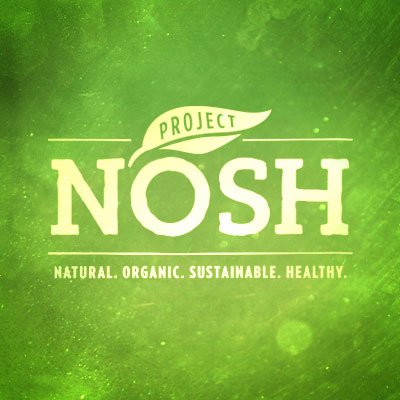
Yogi Tea Acquires Choice Organic
By Beth Kaiserman
As a way to grow its product offerings on the tea shelf, Yogi Tea has purchased Choice Organic Teas for an undisclosed sum.
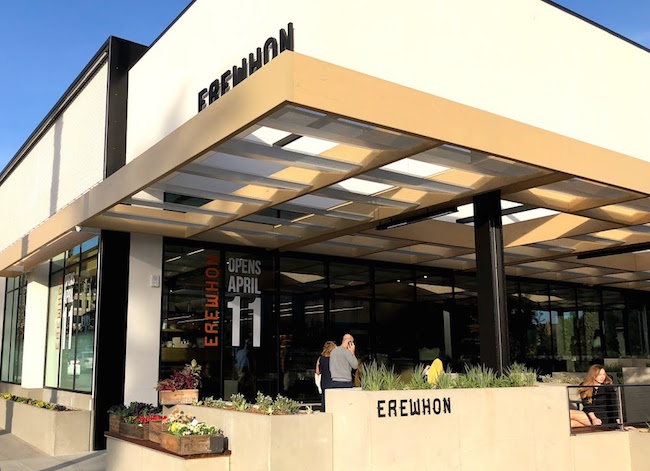

Organic Grocer Erewhon Eyes Expansion After Private Equity Deal
By Chloe Sorvino
The beloved LA-based Erewhon has taken an investment from the Stripes Group and will expand to other parts of California and possibly to NYC in a few years.

Wisconsin Governor Rips Sonny Perdue For Warning Small Dairy Farms Won’t Make It
By Mary Papenfuss
“Make no mistake about it, Trump’s administration is no friend to America’s dairyland,” Democratic Gov. Tony Evers said of the U.S. agriculture secretary.

Liv Up secures $22M for Organic Delivery Service in Brazil
By Jacob Atkins
Despite recent comments from government officials about the need for pesticides, Brazilian consumers are showing a very strong demand for chemical-free, organic food.
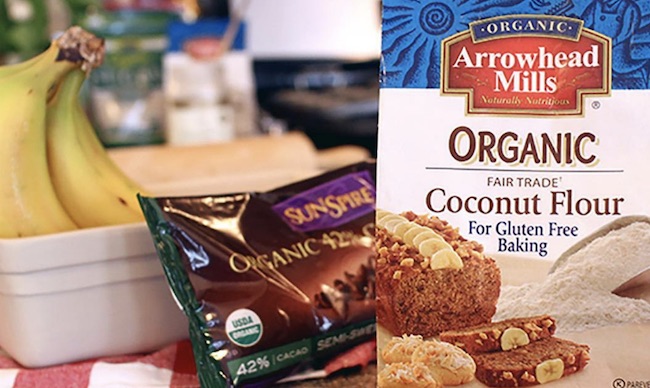

Hometown Foods acquires Organic Baking Brand Arrowhead Mills
By Alexia Elejalde-Ruiz
Hometown Foods, created last year by private equity firm Brynwood Partners, closed Monday on a $15 million deal to buy Arrowhead and SunSpire from New York-based Hain Celestial.

First Organic Citrus Company to Pack 100% Without Plastic
As part of its plan to reduce its carbon footprint by 80% before the end of 2020, Spain-based LucecoFruits is launching its 2019-20 organic citrus campaign with the use of fully compostable and biodegradable packaging.

A Wave of Lawsuits against CBD Companies is Happening
By Elaine Watson
As widely predicted, the plaintiff’s bar has turned its attention to the burgeoning CBD category with a series of lawsuits alleging that products contain “significantly lower levels of CBD than advertised.”
The material in this newsletter is copyrighted and may be reprinted by permission only. All requests must be in writing. Please use our contact form to request republication rights.
Newsletter Archive
Quick Hits
* Organic farming’s ‘sacred’ spot is now open to the public, thanks to the Rodale family.
* Great op-ed by Dr. Vandana Shiva: Fake Food, Fake Meat: Big Food’s Desperate Attempt to Further the Industrialisation of Food.
* If you haven’t filled out the Diversity Benchmarking Survey as part of the work of the Justice, Equity, Diversity and Inclusion (JEDI) Collaborative and the Women on Boards (WOB) Project, please consider doing so.
* It only takes a few minutes and is vital to help promote diversity in the natural products industry.
* The Food Film Festival will be held in New York City from October 24-27.
* Last week in Maine, the $10 million OpenTEAM project to help small farms cut greenhouse gas emissions officially launched.
* Also in Maine, the nation’s first credit union to focus on agriculture has opened.
* 33% of the registered pesticides in Kenya — which come from European companies — are threatening food security in that country.
* Cannabis lawyers give their take on what the food and beverage industry needs to know about CBD.
* Raise the Green Bar 2019: Your Roadmap to Sustainability & Success, put on by The Good Housekeeping Institute and MADE SAFE, is taking place on October 24th in New York City.
* ORGANIC INDIA has won India’s first LEED platinum certification.
* Carbon Neutral Certification is gaining momentum.
